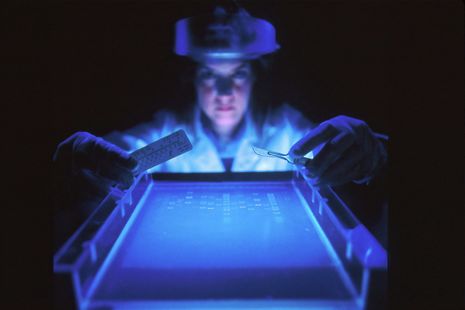Cancer cells ‘hijack’ their way around the body, new research finds
A team of Cambridge scientists have discovered that cancer cells ‘hijack’ a process utilised by healthy cells to spread around the body, unleashing incredible potential for new cancer treatments

A team based at the Cambridge Institute of Cancer Research UK (CRUK) found that cancer cells "hijack" a normal cellular process to move around the body. This challenges the previous theory that metastasis, the spread of cancer cells, was achieved by cancer cells' own machinery.
This transformative research involved the team blocking the activity of a specific protein in mice. When the protein was blocked, migration of cancer cells was triggered, strongly implicating the protein as a key driver of metastasis.
However, to the enormous surprise of the research scientists, blocking the same protein in healthy, cancer-free mice drove their healthy cells to leave their original tissue and travel around the body, just like in cancer cell metastasis. For example, healthy pancreatic cells were found to migrate to the kidney and convert into healthy kidney cells.
The group leader for the study and director of the CRUK Cambridge Centre, Professor Richard Gilbertson, commented: “These findings are among the most important to have come out of my lab for three decades. Not only have we identified one of the elusive drivers of metastasis, but we have also turned a commonly held understanding of this on its head, showing how cancer hijacks processes in healthy cells for its own gains.”
Metastasis is the leading cause of death in cancer patients, such that blocking it is a central goal in the field of cancer research. The team’s progress in identifying a key driver of metastasis is an enormous step towards achieving this life-saving feat.
The profound impact that this research could have for cancer patients was highlighted by CRUK’s Director of Research, Dr Catherine Elliot: “Discovering that a cancer has spread is always devastating news for patients and their families and so we are delighted to have supported this incredible research which may one day allow us to prevent metastasis and turn cancer into a much more survivable disease.”
 Comment / College rivalry should not become college snobbery30 January 2026
Comment / College rivalry should not become college snobbery30 January 2026 Features / Are you more yourself at Cambridge or away from it? 27 January 2026
Features / Are you more yourself at Cambridge or away from it? 27 January 2026 Science / Meet the Cambridge physicist who advocates for the humanities30 January 2026
Science / Meet the Cambridge physicist who advocates for the humanities30 January 2026 News / Cambridge study to identify premature babies needing extra educational support before school29 January 2026
News / Cambridge study to identify premature babies needing extra educational support before school29 January 2026 News / Vigil held for tenth anniversary of PhD student’s death28 January 2026
News / Vigil held for tenth anniversary of PhD student’s death28 January 2026










